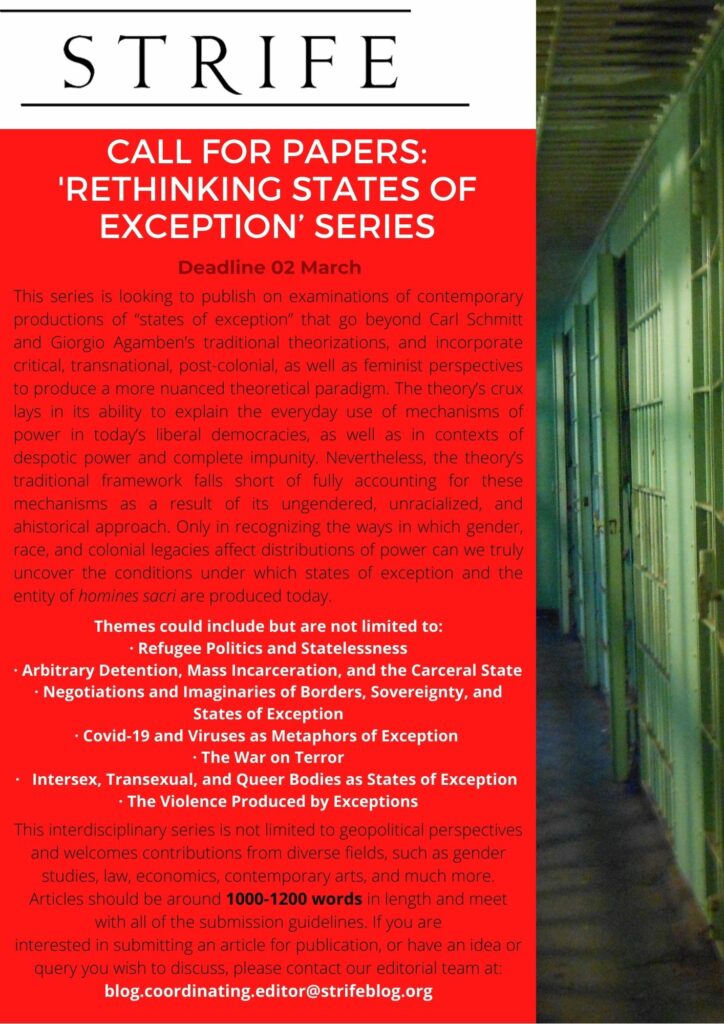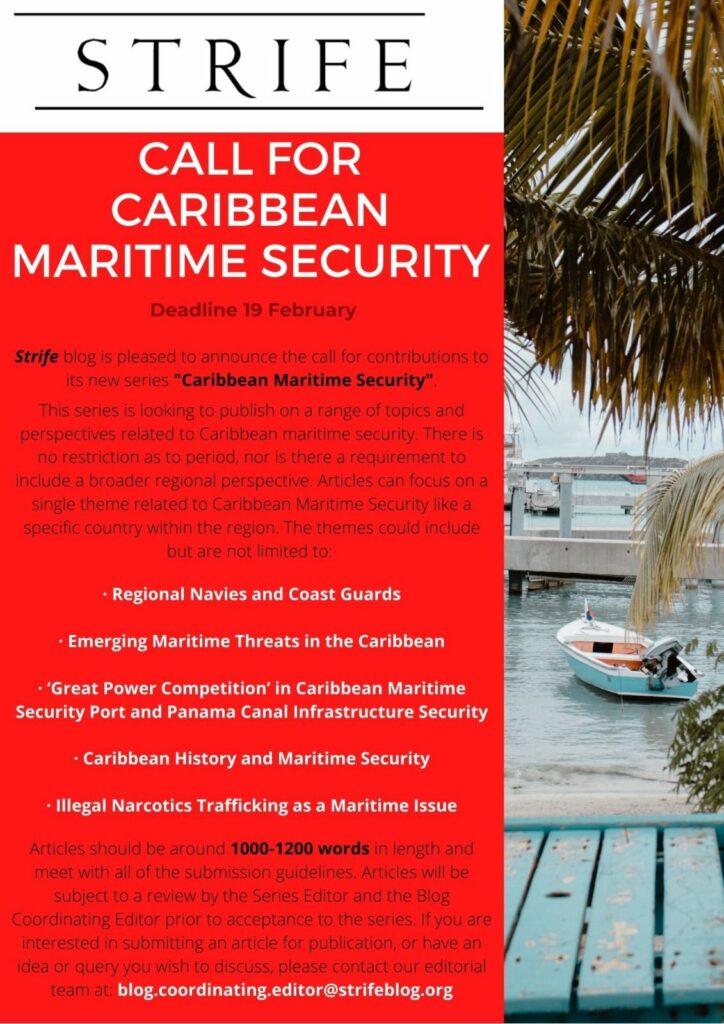Strife is pleased to announce the call for contributions to its ‘Rethinking States of Exception’ Series.
This series is looking to publish on examinations of contemporary productions of “states of exception” that go beyond Carl Schmitt and Giorgio Agamben’s traditional theorizations, and incorporate critical, transnational, post-colonial, as well as feminist perspectives to produce a more nuanced theoretical paradigm. The theory’s crux lays in its ability to explain the everyday use of mechanisms of power in today’s liberal democracies, as well as in contexts of despotic power and complete impunity. Nevertheless, the theory’s traditional framework falls short of fully accounting for these mechanisms as a result of its ungendered, unracialized, and ahistorical approach. Only in recognizing the ways in which gender, race, and colonial legacies affect distributions of power can we truly uncover the conditions under which states of exception and the entity of homines sacri are produced today.
Themes could include but are not limited to:
- Refugee Politics and Statelessness
- Arbitrary Detention, Mass Incarceration, and the Carceral State
- Negotiations and Imaginaries of Borders, Sovereignty, and States of Exception
- Covid-19 and Viruses as Metaphors of Exception
- The War on Terror
- Intersex, Transexual, and Queer Bodies as States of Exception
- The Violence Produced by Exceptions
Questions could include but are not limited to:
- How do we account for and respond to the contemporary production of states of exception?
- Should responses to violent crises always be constitutional?
- What does the “state of exception” mean in a neoliberal world order where executive power is inseparable from the interests of the private sector?
- What is the relationship between human reproduction and governance?
- What function does the securitisation of irregular migration fulfill? In what strategies is it integrated?
This interdisciplinary series is not limited to geopolitical perspectives and welcomes contributions from diverse fields, such as gender studies, law, economics, contemporary arts, and much more. Articles should be around 1000-1200 words in length and meet with all of the submission guidelines. Articles will be subject to a review by the Series Editor and the Blog Coordinating Editor prior to acceptance to the series. Articles that do not meet referencing and formatting guidelines risk being rejected for publication.
Articles should be submitted by 2nd March 2021. If you are interested in submitting an article for publication, or have an idea or query you wish to discuss, please contact our editorial team at: [email protected]

